Life is a perpetual conflict between love and war, their supposedly diametric imageries pervading our consciousness. In literature, our depictions of love have adopted the imagery of war to convey the depths of human emotion, and to describe and further lovers’ means and ends. Astonishingly, Iraqi writer and journalist Majed Mujed goes beyond imagery to present love as war, and war as love. “My poems are infused with love,” says Mujed, “even if they sometimes depict the struggles that I and the people of my country have faced.”
Majed Mujed had published six poetry collections in Arabic and received several awards in his native Iraq. Before moving to Ireland in 2015, Mujed worked in Iraq as a journalist and a cultural section chief of Iraqi official newspaper, al-Sabbah, and editor in other local Arabic journals and magazines. He is the recipient of the inaugural “Play It Forward Fellowship Programme,” a pilot programme lasting for eighteen months, offered by The Stinging Fly and Skein Press, and supported by the Arts Council of Ireland. This program aimed at creating pathways for writers to develop, showcase, and publish their work.
Mujed’s The Book of Trivialities, published by Skein Press in 2023 and artfully rendered into English by Kareem James Abu-Zeid, features Mujed’s original Arabic poems alongside their English translation. In my review of the book in Poetry Ireland Review Issue 141, edited by Nidhi Zak/Aria Eipe, I wrote: “The Book of Trivialities is at once an immersion into a war-torn country and discovery (or rediscovery) of a unique voice in Arabic poetry. This beautifully lush book mirrors our own potential and challenges the violence and materialism of the post-20th century.”
In this interview, I spoke with Mujed on the meaning of poetry, the process of translation, love, war, death, and more. This interview was conducted in Arabic, and I translated it into English.
Ibrahim Fawzy (IF): What’s your definition of poetry? And how can poetry change the world?
Majed Mujed (MM): Poetry, in my view, is the wellspring of human emotion, a symphony of words that resonates with the deepest chords of our being. It is the art that captures the essence of our existence, speaking to our divine nature and the enduring principles that govern our lives. Poetry, when imbued with innovative aesthetic and artistic qualities, leaves an indelible mark on our consciousness. It expands our horizons, deepens our understanding of truth, and fosters acceptance of its consequences. This transformative influence prioritizes the humane aspects of our being, steering us away from violence and oppressive behaviours. The impact of poetry extends beyond the realm of words, encompassing the broader spectrum of art, intellectual pursuits, and philosophical endeavours. When we declare that art has the power to change the world, we are essentially acknowledging its potential to transform humanity. By challenging our rigid thought patterns and moral compasses, creative expression can reshape our cultural and artistic perceptions, ultimately promoting values of justice, shared goodness, and generosity. READ MORE…

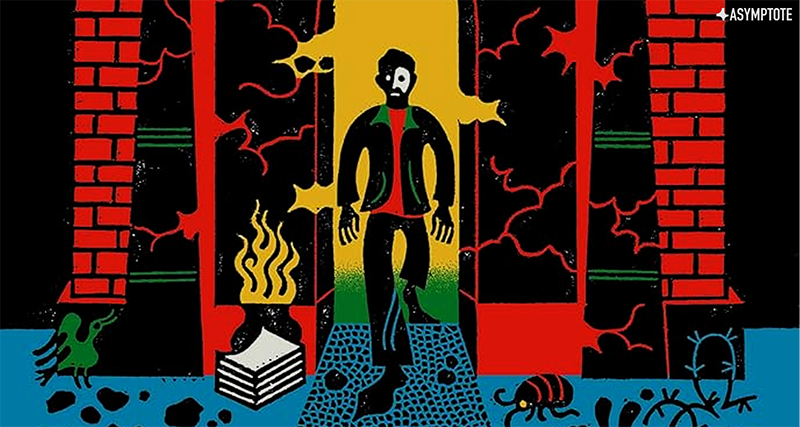

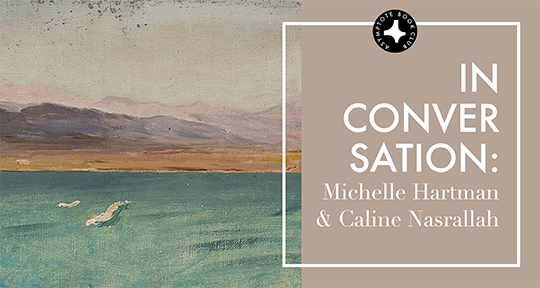
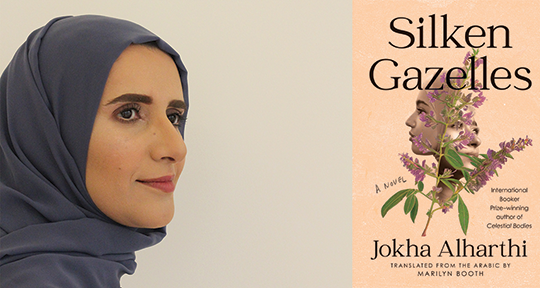
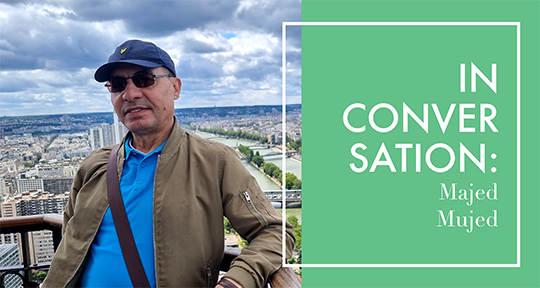
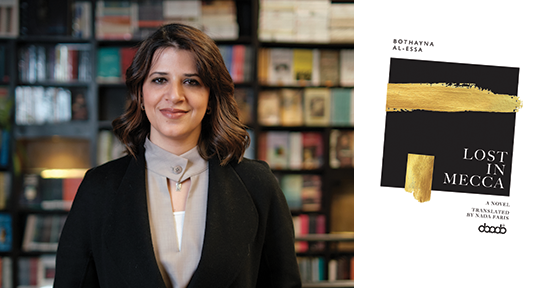
Announcing Our September Book Club Selection: A Long Walk From Gaza by Asmaa Alatawna
Alatawan’s novel is both personal and political; at its heart, it’s a story about freedom.
In Asmaa Alatawna’s mesmerizing and clear-sighted debut novel, A Long Walk from Gaza, the long journey of migration is revealed as a dense mosaic of innumerable moments—a gathering of the many steps one takes in growing up, in fighting back, and in learning the truths about one’s own life. From the Israeli occupation to the daily violences of womanhood, Alatawna’s story links our contemporary conflicts to the perpetual challenges of human society, tracking a mind as it steels itself against judgment and oppression, walking itself towards selfhood’s independent definitions. We are proud to present this title as our Book Club selection for the month of September; as Palestine remains under assault, A Long Walk from Gaza stands as a powerful narrative that resists the dehumanizing rhetoric of war.
The Asymptote Book Club aspires to bring the best in translated fiction every month to readers around the world. You can sign up to receive next month’s selection on our website for as little as USD20 per book; once you’re a member, join our Facebook group for exclusive book club discussions and receive invitations to our members-only Zoom interviews with the author or the translator of each title.
A Long Walk From Gaza by Asmaa Alatawna, translated from the Arabic by Caline Nasrallah and Michelle Hartman, Interlink Publishing, 2024
There are some books that grab you from the very first line and hold your attention tight, right through every single word to the end; even once you’ve finished reading them, they keep delivering with their exquisite phrasings and stunning imagery, their deft, original storytelling. Asmaa Alatawna’s A Long Walk from Gaza, co-translated by Caline Nasrallah and Michelle Hartman, is one such novel. Through her enthralling and thoughtful prose, Alatawna unfolds idea after idea, fact after fact, emotion after emotion, recounting a tumultuous upbringing and journey that moves with both personal and universal resonance.
A Long Walk from Gaza is Alatawna’s debut in both Arabic and English—a semi-fictionalized, coming-of-age novel. Originally published in 2019 as Sura Mafquda, it explores the struggles of a teenage Gazan girl as she rebels against her surroundings, both at home and at school, and her heartbreak as she leaves Gaza for a new life in Europe. Her escape doesn’t resolve her problems but instead introduces new challenges, revealing the persistent, ongoing internal conflict of exile. While portraying life and a childhood under Israeli occupation and oppression, Alatawna also takes an incisive, knowing look at the patriarchal system of her own people. READ MORE…
Contributor:- Ibrahim Fawzy
; Language: - Arabic
; Place: - Palestine
; Writer: - Asmaa Alatawna
; Tags: - autobiographical novel
, - exile
, - feminism
, - Interlink Publishing
, - liberation
, - migration
, - occupation
, - Palestinian literature
, - social commentary
, - War
, - Women Writers